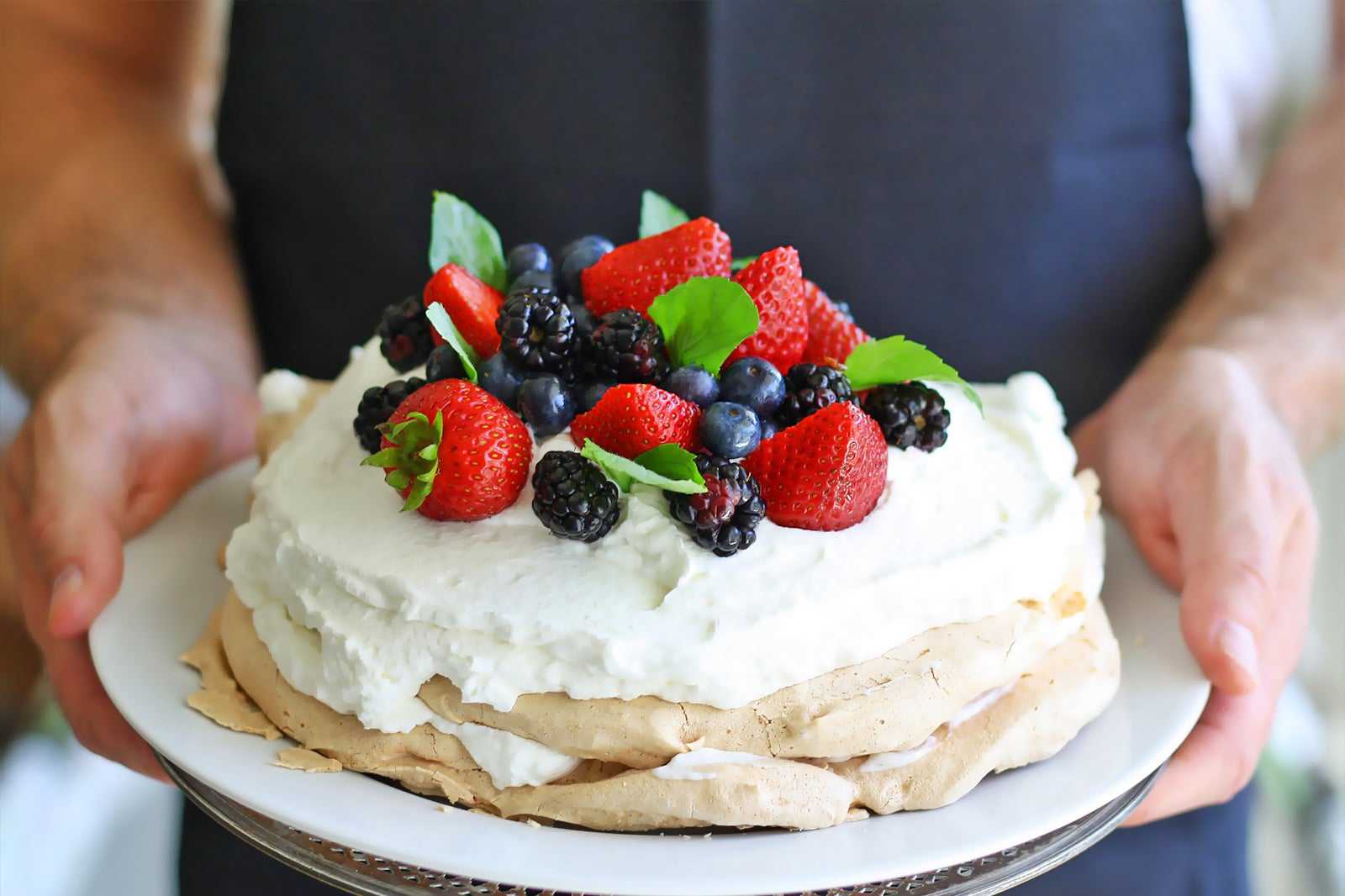The best dishes in Auckland are a combination of influences from western and Maori cultures. As the country’s largest and most cosmopolitan city, Auckland is the best place to taste this coming together of flavours, with many excellent restaurants scattered around the city.
Despite New Zealand’s secluded location in the South Pacific, these days you can find pretty much whatever you fancy eating, from a cheeseburger to a Thai green curry. Fast food is common in downtown Auckland, but you’ll be dining on plenty of meat pies and fish & chips as you move away from the city centre.
- 1
Hangi
Cooking in a traditional earth oven

- Matgæðinga
Hangi is a traditional Maori dish with a rich, smoky flavour. Meat such as chicken, pork, lamb or venison is cooked in a deep hole underground with red-hot stones. Veggies like potatoes, kumara or others are placed on top, and then the entire subterranean oven is sprinkled with water and sealed off with more vegetation to steam for several hours.
Hangi is typically prepared on special occasions, though many restaurants and eateries offer hangi for travellers to experience the true taste of New Zealand culinary tradition.
mynd frá einalem (CC BY-SA 2.0) breytt
- 2
Fish and chips
A trip to the beach isn’t complete without them

- Matgæðinga
Fish and chips is an English deep-fried fish dish that became popular in New Zealand when it was introduced by British settlers. Though whitefish, such as cod, haddock and pollock, are traditionally used in fish and chips recipes in other countries, New Zealand fish and chips recipes often use hoki, shark, bluefin gurnard, blue cod and terakihi.
Fish may be sliced thick or thin and dipped in water and flour batter, beer or milk, along with vinegar for a light, airy texture. Lemon, salt, malt vinegar and other condiments are used to complement the unique flavours of the batter and fish. Traditionally, fish and chips were served in wrappings of newspaper, but that’s very rare these days.
- 3
Whitebait
Tiny fish, deep fried

- Matgæðinga
New Zealand whitebait is one of the most prized seafood delicacies in the country. Different than European whitebait, New Zealand whitebait is made of the sprats of slim, narrow freshwater fish that have a delicate taste.
Whitebait fritters, an omelette dish with whitebait, eggs, butter, salt, pepper and lemon juice, is the most common preparation of whitebait. Some traditionalists prefer egg whites with whitebait, since strong flavours can easily overpower the light, delicate natural flavour of whitebait. Whitebait fishing in New Zealand is a seasonal activity with a legally fixed and limited period, making it a delicacy that commands a high price.
- 4
Meat pie
Eat it on the go

- Matgæðinga
New Zealand meat pie is a hand-sized pie with diced or minced meat and gravy, as well as savoury vegetables or cheese. Beef, buffalo, cattle, camel, deer, goat, hare, pig, rabbit, poultry and sheep are often used in meat pies, though some traditional recipes include offal, such as brain, heart or kidney.
The crust is made from a shortcrust pastry that uses fats like lard and butter to form the shape and add heartiness and crispiness to the dish and complement the juicy, tender meat. The meat pie is an iconic dish in New Zealand, especially with the rugby and football leagues.
- 5
Lolly cake
Every New Zealander had a lolly cake on their birthday

- Matgæðinga
A lolly cake, or lolly log, is a traditional New Zealand sweet cake or confectionery that is available in most restaurants and supermarkets. To create this dessert, lollies or fruit puffs ( similar to soft, chewy marshmallows) are added to a base mixture of malt biscuits with melted butter and condensed milk.
The log is then rolled in coconut or powdered sugar and refrigerated. As a traditional dessert, lolly cake recipes are often altered and passed down through generations. Lolly cakes are similar to fifteens, a traybake confection that’s popular in Northern Ireland.
mynd frá brent simpson (CC BY-SA 2.0) breytt
- 6
Pavlova
Enjoy this tasty meringue fruit cake for dessert

- Matgæðinga
Pavlova is a meringue-based cake with a crispy, crunchy crust and light, fluffy filling that with a marshmallow-like consistency. It is typically topped with fruit, such as strawberries, kiwi or passionfruit, and whipped cream. Though it is an important part of the national cuisine and traditionally served during celebratory and holiday meals, pavlova is a popular dessert all year round.
In the summertime, pavlova is favoured for its light, airy consistency and is paired with fresh fruit for a refreshing treat. Pavlova was believed to have been inspired and created to honour the Russian ballerina, Anna Pavlova, and is one of New Zealand’s national desserts.
- 7
Rewena bread
A classic Maori snack

- Matgæðinga
Rewena bread is a traditional Maori sourdough potato bread that is fermented for several days for a sweet and sour taste. It is made with a potato starter that ferments and leavens the bread, giving it a distinctively tangy or sour flavour. Maori potatoes, also known as taewa, are commonly used in rewena bread. Kumara, a type of sweet potato, is also used for a different balance of sweetness and tanginess.
Though the recipe is simple, rewena bread is a dish that takes time to master and is one of the best-loved dishes in New Zealand. Rewena bread is crumbled over the hands in Maori culture to break the taboo of visiting a cemetery.
- 8
Hokey pokey ice cream
Vanilla ice cream with a crunchy surprise

- Matgæðinga
Hokey pokey ice cream is a distinctive ice cream flavour in New Zealand that combines plain, rich vanilla ice cream with solid, flavourful lumps of honeycomb toffee known as hokey pokey. Similar to caramel, honeycomb candy is a combination of sugar and golden syrup that’s heated and then baking soda is stirred in, leading to a frothy, aerated texture that hardens into a honeycomb.
This light, sweet toffee has a crunchy consistency that works well with the smooth, simple flavours of the vanilla ice cream. ‘Hokey pokey’ was a slang term for ice cream in the 19th and early 20th centuries, especially for the ice-cream vendors on the street, known as ‘hokey-pokey’ men.
- 9
Pork and puha
A Kiwi-style hot pot
- Matgæðinga
Pork and puha is a “boil-up” method of cooking that comes from traditional Maori culinary practices. This dish involves boiling root vegetables, such as kumara and potatoes, spinach and watercress, in a pork-based stock to create a stew.
Doughboys, a type of dumpling, or Maori bread are usually served as a side to the pork and puha meal to absorb the flavourful juices. Pork bones are also used in the stew and the marrow is often consumed. This dish may be served for breakfast, lunch or dinner.
- 10
Colonial goose
When is a goose really a sheep?
- Matgæðinga
Originating from early colonial pioneers in New Zealand, colonial goose is an inventive dish that arose from the bounty of the land. Sheep were quite common, but geese were scarce, so an old country tradition was to turn a leg of lamb or mutton into a goose dish.
Colonial goose is prepared by deboning a leg of lamb, stuffing it with dried apricots, honey, breadcrumbs, onion, parsley, sage and thyme, and soaking it in a red-wine marinade. Once cooked, the roasted lamb has the appearance of a goose, quickly making it a classic dish for mid-winter festivities in homes and restaurants.


















